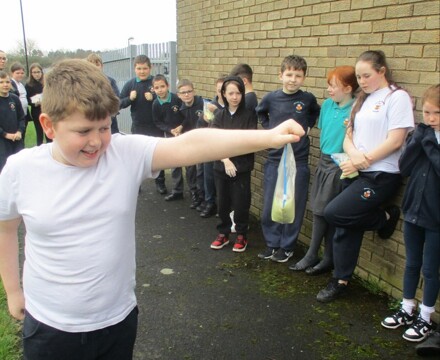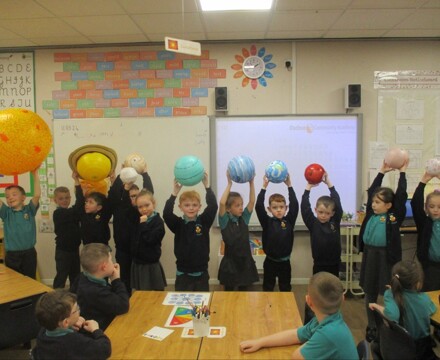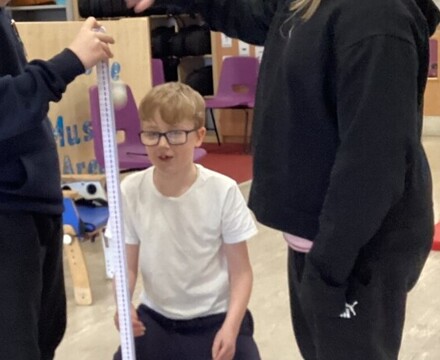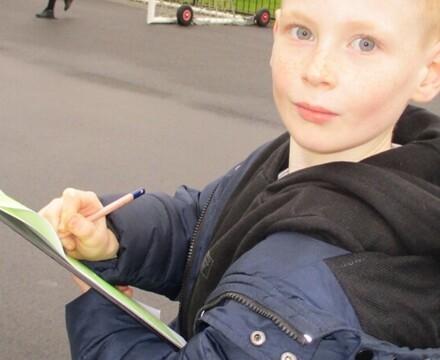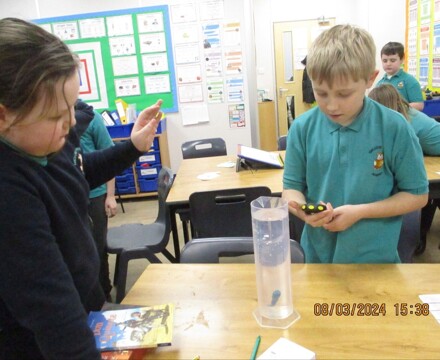- Home
- In the Classroom
- Subject Information
- Science
Science
BackVision and Aims
At Oxclose Primary Academy, our science vision is to provide pupils with a curiosity and enthusiasm to find out about the world around them that will remain with them for the rest of their lives. We recognise that science has changed our lives and is vital to the world's future prosperity and we aim to develop pupils whom are equipped with the scientific knowledge required to understand the uses and implications of science, today and for the future. Progressive teaching should enable pupils to develop understanding of the nature, processes and methods of science through different types of science enquiries along with a secure understanding of each key topic of knowledge and concepts. As pupils progress, they will build up an extended specialist vocabulary. Pupils will learn to use a variety of approaches to answer scientific questions, including, observing over time, pattern seeking, identifying, classifying and grouping, comparative and fair testing and researching. Through high quality planning, teaching, resources, trips, visitors and assessment, children will leave Oxclose knowing more, remembering more and understanding more about science.
-
At Oxclose, we believe that high quality teaching and experiences will inspire pupils to think as scientists and be curious about the world around them.
-
Through a clear progression in our whole school planning, teaching will equip pupils with an excellent understanding of key topics of science knowledge and concepts along with excellent scientific enquiry skills.
-
Pupils will be given frequent opportunities to learn practically to enhance their scientific understanding.
-
Through clear progression in teaching, pupils will develop and use scientific vocabulary.
-
Through high quality experiences pupils will be enabled to know more, remember more and understand more about the science curriculum.
Sequencing Rationale
Oxclose Primary Academy strongly advocates a hands-on approach to science learning. In each step of our curriculum, practical ideas are integrated to encourage pupils to consolidate and deepen their understanding of both knowledge and skills-based concepts, whilst fostering a genuine excitement for the subject amongst pupils.
Units are ordered sequencially within terms and years. Each year covers the National Curriculum, and breaks down into a series of core units. Let’s take Year 1 as an example. Core topics include the human body, animals, plants and materials. The human body is the first thing pupils learn about, in the first half of the Autumn Term. It’s the first unit because it’s the most relatable (we all have one, after all). Animals and plants follow in the Spring and Summer Terms, as pupil’s knowledge and confidence grows. To take another example from Year 3, pupils learn about skeletons in the Autumn Term and fossils in Spring, with one helping to inform the other.
In later years, units become more detailed, but the rationale remains the same. Knowledge builds on knowledge, and there’s lots of opportunity to turn theory into practice. Terms are broken up in interesting, thought-provoking ways. Understanding abstract concepts is a skill all scientists need, and medium-term planning gradually develops this understanding within and between years. For example, In Year 5 pupils are introduced to the concept of gravity. This builds on the knowledge of forces gained in Year 3.
We focus on one working scientifically skill within each topic, so that pupils are learning the methods of scientific enquiry, as well as building scientific knowledge. The working scientifically skills are built upon throughout each year group as pupil's understanding develops each year. In Year 1, that might involve sorting plants into groups based on size, colour or shape and by Year 4, it’s about data collection and classification. Pupils use the knowledge gained in previous years to group and classify living things. Throughout school, the depth of enquiry is gradually increased, as young minds develop. For example, Year 2 pupils add to the knowledge of plants and animals gained in Year 1 with explorations around habitats and the fundamentals of survival.
Each year has been meticulously planned so that topics lead into or complement each other, and knowledge from a previous unit, term or year is reused in a practical way. Nothing comes out of the blue and knowledge builds steadily over time. All of this helps to make science fascinating, as pupils discover the interconnected forces and factors that make the world what it is. It also helps knowledge to stick.
Extraordinary Opportunities
-
Science Week
-
Links to Durham University through the Science Outreach Office, including yearly CPD for staff and a range of visitors into school to work with children.
-
Links to Newcastle University including trips to their science department for UKS2 children, and in-school workshops for LKS2 children.
-
Yearly class trips with Science themes in Reception, Year 1, Year 3 and Year 5.
Intent
At Oxclose Primary Academy, we believe Science should be fun and enjoyable. It should involve practical, hands-on experiences for all children to participate. Science should encourage a natural curiosity about the world around us. During Science lessons, we should take part in a variety of scientific experiences, including outdoor opportunities. We should be able to ask questions so that we can predict, investigate, record and conclude in different ways.
Our Science curriculum will provide children with knowledge and facts relating to a variety of units linked to biology, chemistry and physics (animals, including humans, states of matter and forces and magnets). Where units are repeated across school, we will ensure the knowledge shared with children is progressive and builds on what they already know.
We believe that the Science knowledge and skills we provide our children with will help them throughout the rest of their lives and ensure they are ready for the next stage of their learning.
Implementation
Science is one of our core subjects, which acts as a driver and the Science Long Term Plan follows the National Curriculum. Medium Term Plans are in place for the teaching of Science, which have been written by the Subject Leader. Each Medium term Plan begins with a question to support pupils in developing their enquiry skills. Elements of working scientifically are identified on Medium Term Plans to ensure they are incorporated into lessons at an appropriate level.
Science is taught weekly across each year group. There are occasions throughout the school year when Science teaching in blocked (Science Week). During Science Week there is a whole school theme and staff ensure the knowledge and skills taught within this week are progressive and appropriately differentiated. Children will be given opportunities to learn about key Scientists, linked to their Science unit, and how they have impacted on everyday life.
Sticky knowledge is identified for each Science unit, this is the knowledge we want pupils to be able to know, and remember, both during the teaching of the unit and after. In all year groups and units there are sticky knowledge mats , which identify this sticky knowledge and are used and available each lesson.
Scientific vocabulary is a focus in all science lessons and pupils will develop this over time, completing activities to share new language and what it means. There will also be opportunities for pupils to have visits and/or visitors linked to their Science Curriculum.
Assessment will take place across lessons, at the end of each unit and across the school year. Pupils will be expected to be able to recall key sticky knowledge both within the teaching sequence and after the unit has been covered. Pupils will also complete activities to identify what they now know that they didn’t know previously.
Impact
Pupils will be able to confidently discuss, and demonstrate all aspects of the science curriculum that they have been covering as well as working scientifically elements. They will have knowledge of biology, chemistry and physics based units of work and be able to discuss investigative work with confidence. Pupils will be able to retain the knowledge, even after the unit they have been covering. Key sticky knowledge from previous units will be retained.
To enable us to measure the impact, the subject leader and senior leaders will use lesson visits, work scrutinies and pupil voice activities across the year.
| Subject Documents |
|---|
| Science Long Term Plan |
| Example Science Medium Term Plan |
